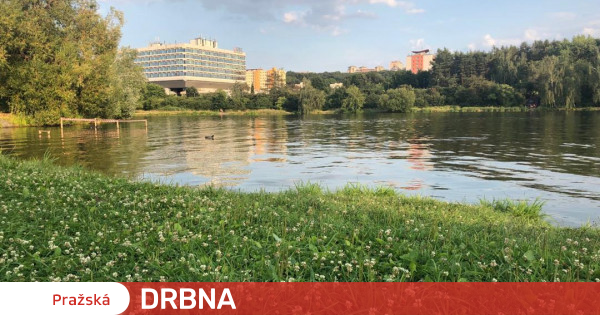Hygiene experts have issued a temporary ban on swimming in Džbán’s natural swimming pool in Prague 6. The reason is an overgrowth of cyanobacteria and chlorophyll. Tests also revealed increased occurrences in the water in Hostiva’s natural pools. You can still swim there, but sensitive people may have health problems.
In the five remaining controlled swimming pools in the metropolis, the water quality is much better, the Prague Sanitation Station reported today on the website.
Tests of water taken Monday at the Džbán swimming pool showed that the limits for cyanobacteria and chlorophyll were almost doubled. According to hygiene experts, warm weather contributes to their multiplication in the water. Blue-green algae contain substances that can cause serious allergic reactions, experts warn. They also produce toxins that are capable of causing permanent liver damage.
There is no official operator at the Džbán pool this year. The swimming pool area is closed to the public, but some people still use the area outside the former swimming pool for swimming.
Tests revealed an increased occurrence of cyanobacteria in the water in Hostiva’s natural swimming pool. Hygienists rate the quality as a class three out of five. Sensitive people may experience health problems after swimming in host dams. Therefore, experts recommend that people take a shower after bathing.
Natural swimming pools at Motol and eberák have reduced water transparency. Despite its slightly deteriorating properties, the water is harmless and poses no health risk.
According to hygiene experts, the biotope at Radotín, the concrete reservoir Divoká árka and the biotope Lhotka in Prague 4 have the highest water quality levels.

“Certified bacon geek. Evil social media fanatic. Music practitioner. Communicator.”







